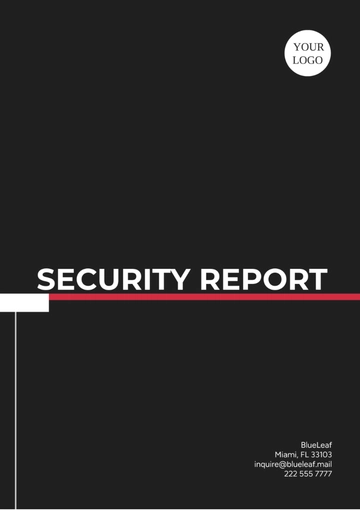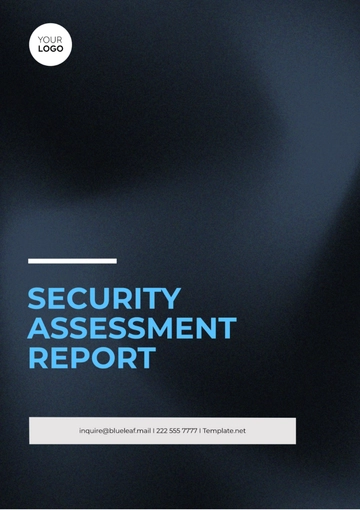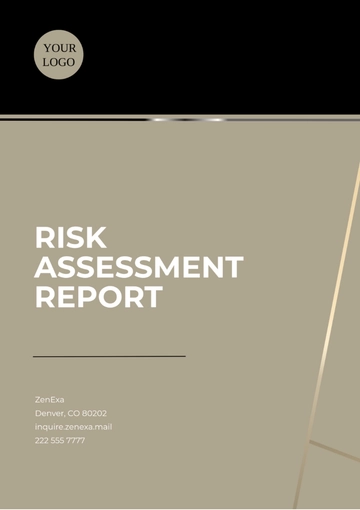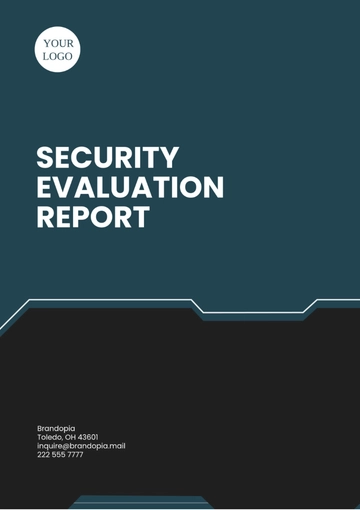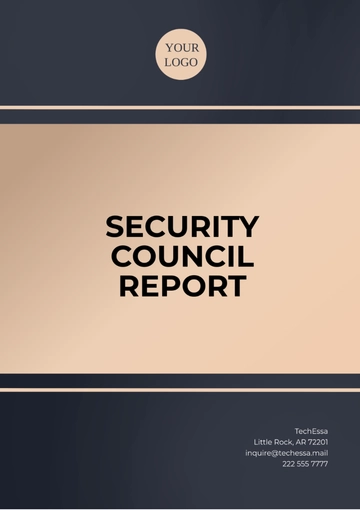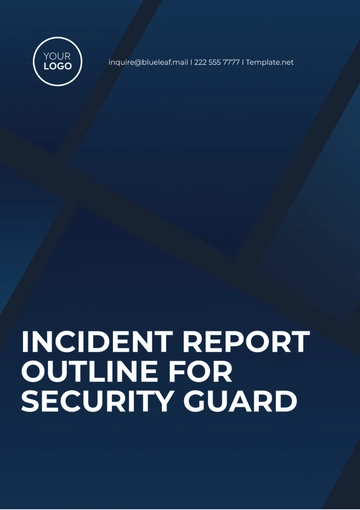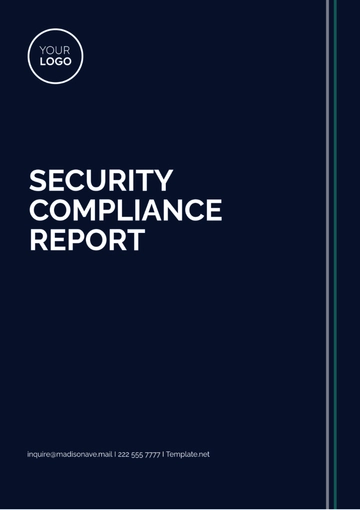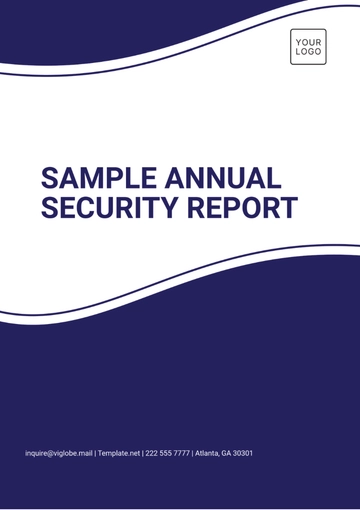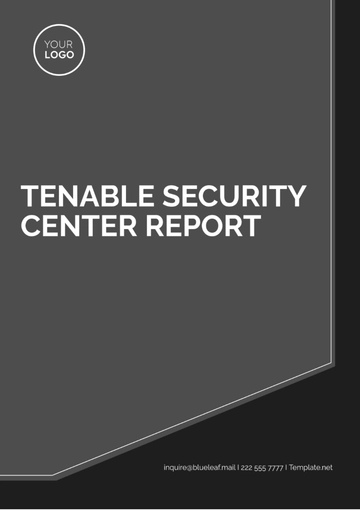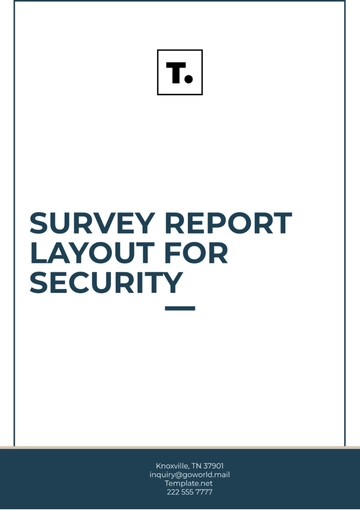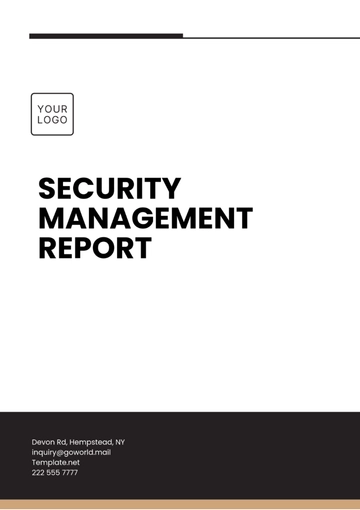Free Security Council Report
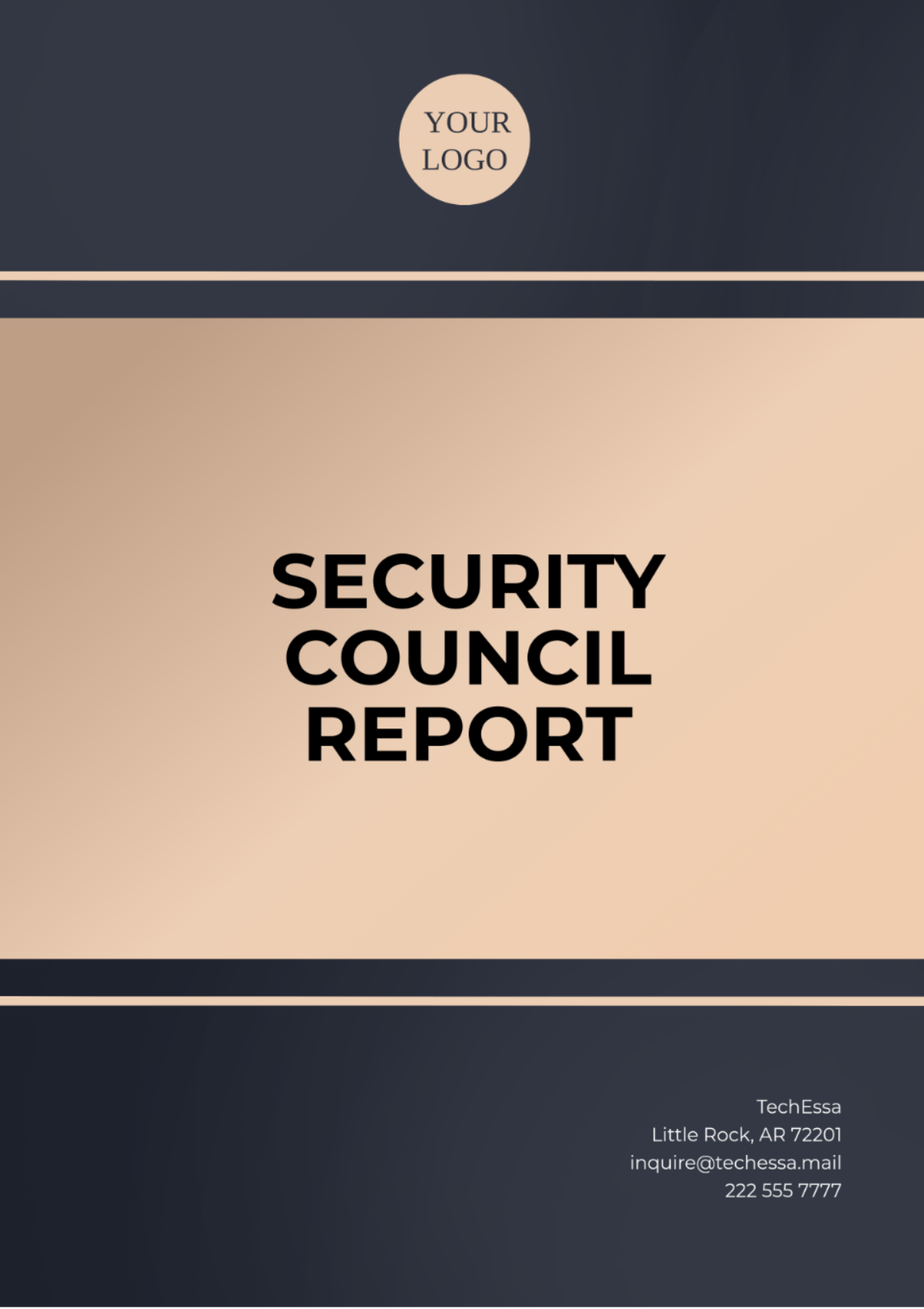
Prepared by: [Your Name]
I. Overview of the Security Council
The United Nations Security Council is one of the six principal organs of the United Nations, charged with ensuring international peace and security, recommending the admission of new UN members to the General Assembly, and approving any changes to the UN Charter. Its powers include the establishment of peacekeeping operations, enacting international sanctions, and authorizing military action.
1. Members of the Security Council
The Security Council consists of 15 members:
5 Permanent Members: China, France, Russia, the United Kingdom, and the United States
10 Non-Permanent Members: Elected for two-year terms by the General Assembly
2. Functions and Powers
The Security Council has the obligation to maintain international peace and security. It can:
Investigate disputes
Recommend methods of resolution
Impose sanctions
Authorize the use of force
II. Recent Activities and Resolutions
In recent months, the Security Council has addressed several critical global issues. This section provides an overview of significant activities and resolutions.
1. Conflict Resolutions and Peacekeeping Operations
Recent efforts have focused on resolving ongoing conflicts, including:
Region | Issue | Action |
|---|---|---|
Middle East | Syria Conflict | Continuation of humanitarian aid access |
Africa | Sudan Internal Conflict | Deployment of peacekeeping troops |
2. Sanctions and International Law
The Security Council has imposed sanctions on various entities to maintain peace:
Iran: Sanctions related to nuclear activities
North Korea: Economic sanctions due to missile tests
III. Challenges and Criticisms
The Security Council often faces challenges and criticisms related to its operations and decision-making processes.
1. Veto Power
The veto power held by the five permanent members is a point of contention. This can lead to:
Gridlocks in decision-making
Bias towards the interests of the permanent members
2. Representation and Inclusivity
Critics argue for reforms to include more representation from diverse regions. Currently, the number of non-permanent member's representation lacks geographical balance.
Debates continue over the Council's structure and its ability to respond effectively to emerging global challenges.
IV. Future Prospects and Reforms
Efforts are underway to improve the effectiveness and legitimacy of the Security Council through potential reforms.
1. Proposed Reforms
Suggestions for reform include:
Expanding the number of permanent and non-permanent members
Limiting veto powers in cases of mass atrocities
These proposed changes aim to enhance the Council's responsiveness and accountability in dealing with international peace and security issues.
- 100% Customizable, free editor
- Access 1 Million+ Templates, photo’s & graphics
- Download or share as a template
- Click and replace photos, graphics, text, backgrounds
- Resize, crop, AI write & more
- Access advanced editor
Streamline your security council reports with Template.net's Security Council Report Template. This fully editable, customizable template is designed to save time while ensuring professional, precise formatting. With our AI Editable Tool, effortlessly personalize content to meet specific needs, making it ideal for official documentation and accurate reporting. Perfect for teams seeking efficiency and excellence.
You may also like
- Sales Report
- Daily Report
- Project Report
- Business Report
- Weekly Report
- Incident Report
- Annual Report
- Report Layout
- Report Design
- Progress Report
- Marketing Report
- Company Report
- Monthly Report
- Audit Report
- Status Report
- School Report
- Reports Hr
- Management Report
- Project Status Report
- Handover Report
- Health And Safety Report
- Restaurant Report
- Construction Report
- Research Report
- Evaluation Report
- Investigation Report
- Employee Report
- Advertising Report
- Weekly Status Report
- Project Management Report
- Finance Report
- Service Report
- Technical Report
- Meeting Report
- Quarterly Report
- Inspection Report
- Medical Report
- Test Report
- Summary Report
- Inventory Report
- Valuation Report
- Operations Report
- Payroll Report
- Training Report
- Job Report
- Case Report
- Performance Report
- Board Report
- Internal Audit Report
- Student Report
- Monthly Management Report
- Small Business Report
- Accident Report
- Call Center Report
- Activity Report
- IT and Software Report
- Internship Report
- Visit Report
- Product Report
- Book Report
- Property Report
- Recruitment Report
- University Report
- Event Report
- SEO Report
- Conference Report
- Narrative Report
- Nursing Home Report
- Preschool Report
- Call Report
- Customer Report
- Employee Incident Report
- Accomplishment Report
- Social Media Report
- Work From Home Report
- Security Report
- Damage Report
- Quality Report
- Internal Report
- Nurse Report
- Real Estate Report
- Hotel Report
- Equipment Report
- Credit Report
- Field Report
- Non Profit Report
- Maintenance Report
- News Report
- Survey Report
- Executive Report
- Law Firm Report
- Advertising Agency Report
- Interior Design Report
- Travel Agency Report
- Stock Report
- Salon Report
- Bug Report
- Workplace Report
- Action Report
- Investor Report
- Cleaning Services Report
- Consulting Report
- Freelancer Report
- Site Visit Report
- Trip Report
- Classroom Observation Report
- Vehicle Report
- Final Report
- Software Report
